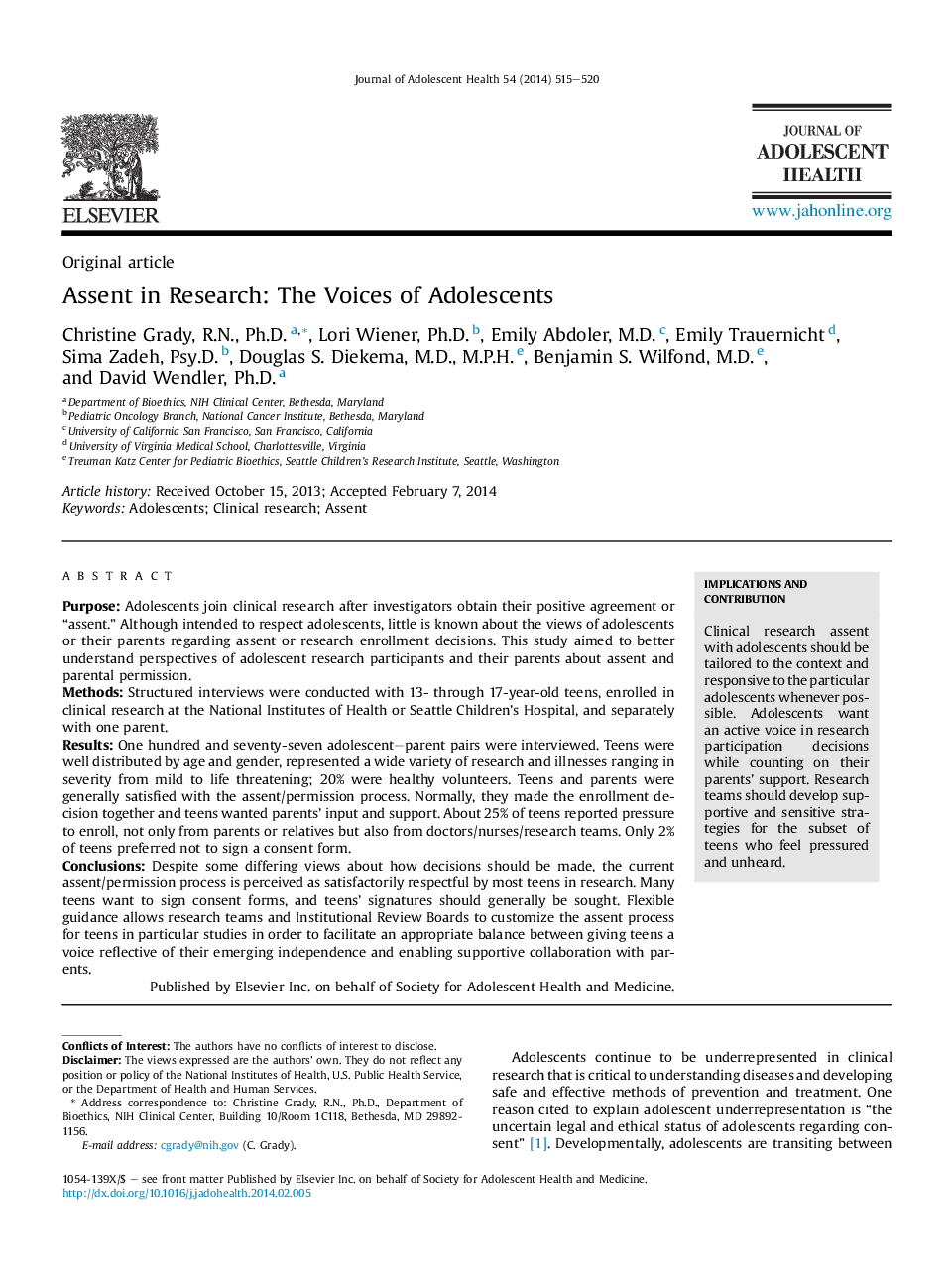| Article ID | Journal | Published Year | Pages | File Type |
|---|---|---|---|---|
| 1078105 | Journal of Adolescent Health | 2014 | 6 Pages |
PurposeAdolescents join clinical research after investigators obtain their positive agreement or “assent.” Although intended to respect adolescents, little is known about the views of adolescents or their parents regarding assent or research enrollment decisions. This study aimed to better understand perspectives of adolescent research participants and their parents about assent and parental permission.MethodsStructured interviews were conducted with 13- through 17-year-old teens, enrolled in clinical research at the National Institutes of Health or Seattle Children's Hospital, and separately with one parent.ResultsOne hundred and seventy-seven adolescent–parent pairs were interviewed. Teens were well distributed by age and gender, represented a wide variety of research and illnesses ranging in severity from mild to life threatening; 20% were healthy volunteers. Teens and parents were generally satisfied with the assent/permission process. Normally, they made the enrollment decision together and teens wanted parents' input and support. About 25% of teens reported pressure to enroll, not only from parents or relatives but also from doctors/nurses/research teams. Only 2% of teens preferred not to sign a consent form.ConclusionsDespite some differing views about how decisions should be made, the current assent/permission process is perceived as satisfactorily respectful by most teens in research. Many teens want to sign consent forms, and teens' signatures should generally be sought. Flexible guidance allows research teams and Institutional Review Boards to customize the assent process for teens in particular studies in order to facilitate an appropriate balance between giving teens a voice reflective of their emerging independence and enabling supportive collaboration with parents.
